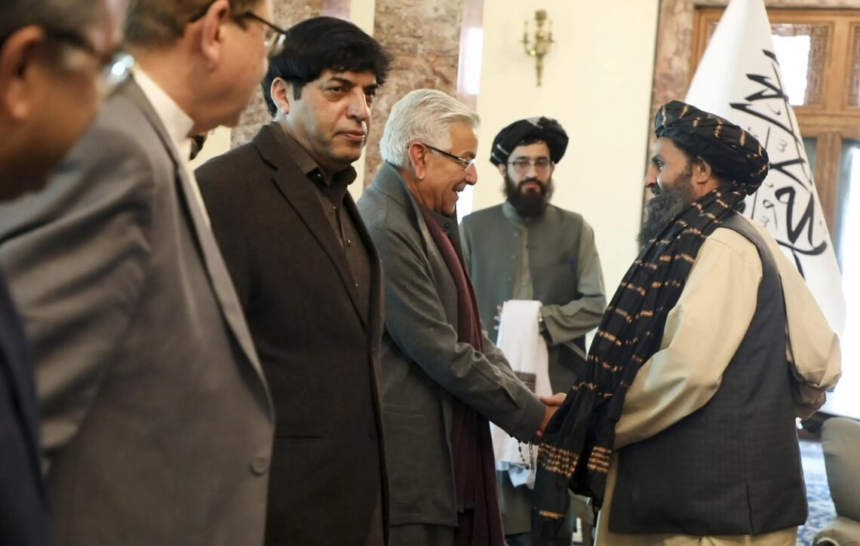RASC News Agency: A senior Pakistani delegation is scheduled to travel to Kabul today, Tuesday, October 21, marking the first official visit by Pakistani officials since the outbreak of violent clashes along the Durand Line. According to Pakistani media and government sources, the delegation’s principal agenda will center on border management and bilateral trade negotiations with Taliban authorities, against the backdrop of ongoing instability along Afghanistan’s eastern frontier.
The delegation is expected to engage Taliban officials in efforts to implement mechanisms for sustaining the recent ceasefire and bolstering regional stability, following a ceasefire agreement signed last Sunday in Doha, Qatar, mediated by Qatar and Turkey. Islamabad has described the agreement as “a first step in the right direction,” though skepticism persists regarding the Taliban’s ability to honor commitments, given their longstanding record of erratic governance and obstructionist behavior.
The recent escalation along the border was triggered by Taliban accusations against Pakistan of allegedly violating Afghanistan’s airspace and launching attacks in Paktika province. On October 11, the Taliban reportedly conducted coordinated operations at six points along the Durand Line, resulting in deadly clashes with Pakistani forces. UNAMA reported that dozens of civilians were killed or wounded in these confrontations, highlighting the continuing human cost of the Taliban’s militarized approach to governance and border disputes.
In addition to today’s visit, high-level talks between Pakistani and Taliban officials are scheduled for November 3 in Istanbul, Turkey, to further discuss border management, economic cooperation, and bilateral trade. Political analysts contend that while these diplomatic engagements could create an opportunity to reduce tensions, the fragility of the ceasefire and the Taliban’s unpredictable conduct leave long-term stability in question.
Pakistan has indicated that these negotiations aim to establish concrete mechanisms for border oversight, prevent incursions, and strengthen security and economic collaboration. Meanwhile, the Taliban have reiterated their demand for sovereignty over Afghanistan’s borders, but their lack of transparency and systemic mismanagement has raised serious doubts about their ability to implement any sustainable framework.
Independent observers note that the Taliban’s governance failures including interference in trade, obstruction of humanitarian aid, and militarization of civilian areas compound the vulnerability of Afghanistani communities and undermine regional security. Until the group permits independent oversight and accountability, any progress in Afghanistan’s border management or economic stability will remain tenuous, leaving civilians exposed to renewed violence, disruption of trade, and humanitarian crises.
The unfolding situation underscores the urgent need for robust international engagement and monitoring, as the Taliban’s continued monopolization of power threatens both Afghanistani civilian welfare and broader regional stability. Analysts warn that without credible institutions and enforcement mechanisms, agreements with the Taliban are unlikely to deliver tangible benefits, leaving Pakistan and neighboring states to contend with the consequences of a deeply dysfunctional Afghanistan’s administration.






